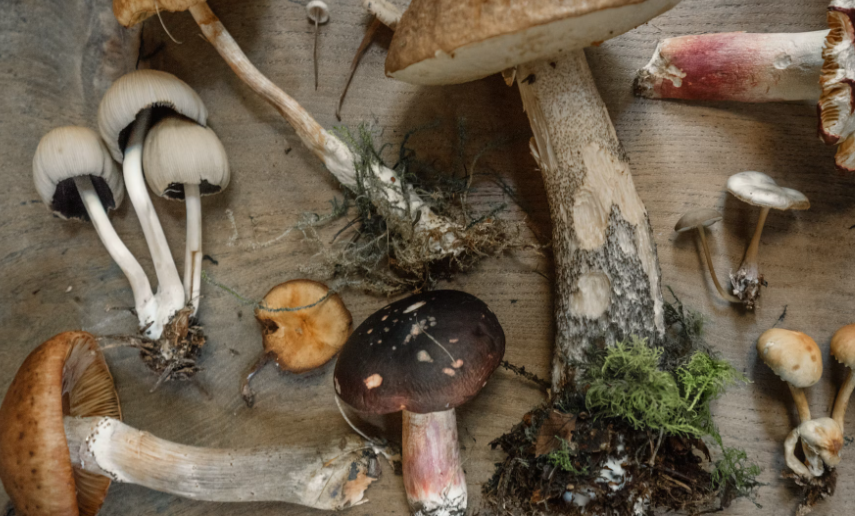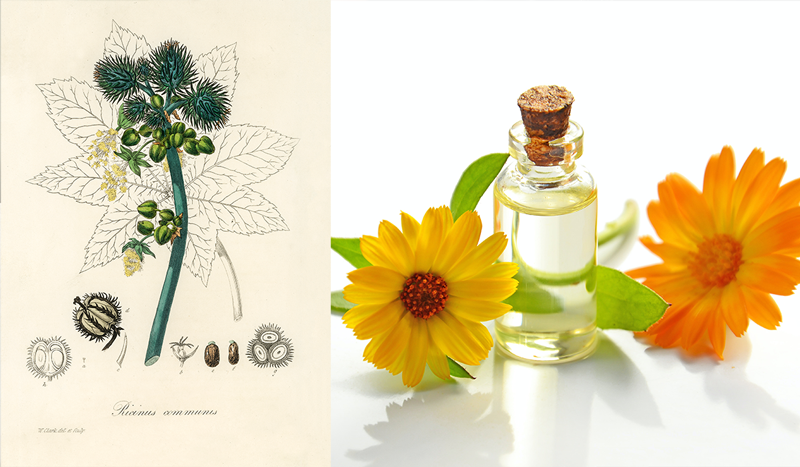Can These Medicinal Mushrooms Boost Your Health?

© Andrew Ridley / Unsplash
Ever since COVID hit, many of us have been looking for different opportunities to boost our immune system so it gets stronger for future virus attacks. One of the rising stars for immune boosting has been medicinal mushrooms. However, the usage of these mushrooms is not necessarily new.
For centuries, mushrooms have been valued for their versatile and health-enhancing properties, making them a staple in traditional medicine. Nowadays, with the growing prominence of functional medicine and holistic nutrition, there is a revived interest in these superfoods. However, before you run to your nearest supermarket or pharmacy, there are a few things you need to know beforehand.
What Are Medicinal Mushrooms?
Medicinal mushrooms are a group of fungi that have been historically and culturally used for their therapeutic properties and potential health benefits. These mushrooms are distinct from the common culinary mushrooms we typically consume, such as button mushrooms or portobello mushrooms. Instead, they are selected for their unique bioactive compounds and nutritional profiles that are believed to support various aspects of health.
Various species of medicinal mushrooms have been used in traditional medicine systems like Traditional Chinese Medicine (TCM) and Ayurveda for thousands of years. They are often consumed in various forms, including teas, tinctures, capsules, or powders, to harness their potential healing properties.
Medicinal Mushrooms Benefits
Different medicinal mushrooms are believed to offer a range of health benefits, including immune system support, anti-inflammatory effects, antioxidant properties, and potential benefits for conditions such as stress, anxiety, and more. This means that medicinal mushrooms can benefit you in the following:

Immune System Support
Many medicinal mushrooms are believed to enhance the immune system’s function, helping the body defend against infections and illnesses.
Antioxidant and Anti-Inflammatory Effects
Medicinal mushrooms are often rich in antioxidants, which can combat oxidative stress and inflammation, potentially reducing the risk of chronic diseases.
Cognitive Health
Some mushrooms may support brain health by promoting cognitive function and even aiding in nerve regeneration.
Increased Energy and Stamina
Certain mushrooms, such as cordyceps, are thought to boost energy levels and enhance physical performance.
Stress Reduction
Adaptogenic mushrooms, like ashwagandha, may help the body adapt to stress, potentially reducing anxiety and enhancing resilience.
Liver and Heart Health
Medicinal mushrooms like shiitake may contribute to liver health and help manage cholesterol levels, potentially benefiting heart health.
Digestive Health
Some mushrooms may promote a balanced gut microbiome, supporting overall digestive health.
Potential Antiviral and Antibacterial Properties
Certain mushrooms may possess antiviral and antibacterial properties, which could help prevent infections.
5 Medicinal Mushrooms You Need to Try Out
Here are some of the most well-known medicinal mushrooms:
1. Shiitake
Shiitake mushrooms (Lentinula edodes) are a type of edible mushroom native to East Asia, particularly Japan, China, and Korea. They are one of the most popular and widely cultivated mushrooms in the world, known for their distinctive flavor, meaty texture, and potential health benefits. These mushrooms offer a multitude of health benefits due to their unique nutritional composition. These benefits include:
Cancer Prevention
Lentinan, found in shiitakes, can help repair DNA damage caused by anticancer treatments. Shiitake extracts have also shown promise in preventing tumor growth.
Weight Management
Shiitakes can be as filling as meat, potentially reducing food intake and aiding in weight management.
Vitamin D Production
These mushrooms contain high levels of vitamin D, which can be boosted further when they are exposed to sunlight. Vitamin D is essential for maintaining healthy teeth, and bones, and preventing inflammation.
Immune System Support
Shiitakes contain beta-glucans, which support the immune system, antioxidant system, and endocrine system. They also promote the growth of beneficial gut bacteria and regulate insulin and blood sugar levels.

Copper and Protein Source
These mushrooms are rich in copper, crucial for red blood cell formation, healthy blood vessels, bones, nerves, and immune function. Shiitakes are also an excellent source of protein, containing eight of the nine essential amino acids required in the diet for various bodily functions.
2. Lion’s Mane
Lion’s Mane is an ancient mushroom originating from Asia, with a history of culinary and medicinal use dating back thousands of years. It is known by various names, including “monkey head mushroom” in China, “mountain monk mushroom” in Japan, and “bearded tooth” or “pom-pom” mushroom in North America. The scientific name for the most common Lion’s Mane species is Hericium erinaceus.

Some of the potential health benefits associated with Lion’s Mane include:
Brain Health
Lion’s Mane is considered a nootropic, with compounds that may enhance brain function, memory, and cognition. It may also support nerve growth and reduce oxidative stress in the brain.
Mood and Stress Support
Lion’s Mane may have mood-lifting properties and support a positive mood while reducing occasional stress and anxiety.
Focus and Mental Energy
It can help maintain focus, boost productivity, and increase mental energy, making it popular among students and professionals.
Brain Fog Relief
Lion’s Mane may help alleviate brain fog, which can be associated with aging, certain medical conditions, medications, and other factors.
Sleep Improvement
Lion’s Mane may advance the sleep-wake cycle, decrease wakefulness during REM sleep, and promote more restful sleep.
Digestive Health
Traditional Chinese Medicine has used Lion’s Mane for digestive health, and it has been promoted as a tonic for overall vitality.
3. Chaga
Fun fact: Chaga is not actually a mushroom! It is technically a sterile conk that forms on hardwood trees, typically birch, when infected by the parasitic fungus Inonotus obliquus. This parasitic fungus weakens the tree’s infrastructure, allowing chaga to protrude.
Chaga contains over 200 bioactive metabolites, including polysaccharides (beta-glucans), melanins, triterpenes, benzoic acid derivatives, ergosterol, ergosterol peroxide, sesquiterpene, and hispidin. Polysaccharides, particularly beta-glucans, are the most active compounds in Chaga.
Chaga offers diverse health benefits, including:
- Antioxidant Boost. Chaga scavenges free radicals and protects DNA from oxidative stress damage. It helps combat oxidative stress, which can lead to cell damage and various health issues.
- Digestive Health. Chaga supports gastrointestinal health and helps regulate gut microbiota, promoting digestive comfort.
- Blood Sugar Balance. Chaga may help maintain balanced blood sugar levels, which is crucial for overall health, including heart, blood vessels, nerves, kidneys, skin, and brain health.

4. Cordyceps
Cordyceps mushrooms are a diverse group of parasitic fungi comprising over 400 species. They are found worldwide, infecting various insects and arthropods, with each Cordyceps species targeting a specific host.

Some of the health benefits it offers are:
- Ancient Chinese Medicinal Uses: Cordyceps have been a staple in traditional Chinese medicine for centuries, with a wide range of applications.
- Enhanced Physical Performance: Cordyceps can boost physical performance by improving oxygen utilization and increasing stamina.
- Balanced Inflammation Support: Cordyceps possess anti-inflammatory properties that aid the body’s natural response to inflammation.
- Optimized Testosterone Levels: Some research suggests Cordyceps may help maintain optimal testosterone levels.
- Improved Sexual Vitality: Cordyceps are believed to act as an aphrodisiac, potentially enhancing libido and sexual function.
5. Maitake
Maitake mushrooms, also known as “hen-of-the-woods” or “dancing mushrooms,” are renowned for their rich vitamin D content and distinctive flavor. These fungi are abundant in bioactive polysaccharides, including D-fraction, MD-fraction, and SX-fraction, known for their immune-boosting and anti-tumor properties. Here are some key health benefits of maitake mushrooms:
Heart Health
Maitake mushrooms, thanks to their beta-glucan content, can help lower cholesterol levels and improve overall cardiovascular health. They reduce LDL (bad) cholesterol without affecting triglycerides or HDL (good) cholesterol.
Immune System Support
Maitake mushrooms, particularly their D-fraction, enhance the immune system by promoting the production of lymphokines and interleukins, strengthening the body’s immune response.
Cancer Support
Maitake mushrooms, rich in beta-glucans, demonstrate the potential to target and destroy cancer cells. Studies have shown their effectiveness against various cancer types. Combining D-fraction and MD-fraction with vitamin C can enhance their anti-cancer properties.
Diabetes Management
The SX fraction found in maitake mushrooms has been clinically proven to reduce blood glucose levels. It achieves this by activating insulin receptors and reducing insulin resistance, making it beneficial for diabetes management.

Downsides to Consider
Medicinal mushrooms, while offering various health benefits, also come with potential downsides. Allergies to certain mushroom species can lead to mild to severe reactions, particularly in individuals with known allergies. Additionally, some people may experience digestive discomfort, such as bloating or gas, when consuming these mushrooms, especially in concentrated forms or large quantities.
Furthermore, the use of medicinal mushrooms may interact with certain medications or medical conditions, so it’s essential to consult a healthcare professional before incorporating them into your routine. Lastly, the safety and efficacy of long-term use of medicinal mushrooms, particularly in high doses, require more research, and potential side effects from prolonged use remain unclear.
Would you be willing to give these medicinal mushrooms a try?


